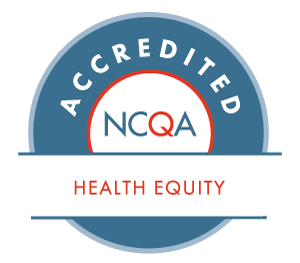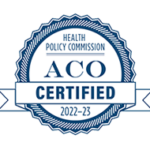When the coronavirus pandemic first hit the U.S. back in March, it was nearly impossible to get tested unless you were really, really sick. Fast forward nine months, and thankfully testing is a lot more widespread: In most states, you can get tested when you have mild symptoms, or even as a precaution before getting on an airplane or seeing a friend.
As a result, more and more people are shocked when they test positive for the virus, despite feeling completely fine. “We are seeing more and more individuals completely asymptomatic and testing positive before a flight or before surgery,” Dr. Julita Mir, MD, Infectious Disease Physician and Chief Medical Officer of Community Care Cooperative, tells Parade.com.
As the asymptomatic and infected among us reluctantly enter 10-14 day quarantines until the virus clears their body, this particular phenomenon begs the question: How many of us are walking around with asymptomatic COVID cases? We talked with doctors—here’s what they think.
The “official” number of people who are asymptomatic
While 2020 has seemed like the longest year of all time, it’s worth remembering that COVID-19 is actually very new. As a result, we still don’t know as much as we probably will in coming years—including the official amount of people who produce an asymptomatic response to the virus.
“We don’t know how many people are asymptomatic, because we haven’t had widespread enough testing,” explains Dr. Alan Taege, MD, an infectious disease specialist at the Cleveland Clinic. “The only way to know that is to test full populations or very large numbers of people. There have been a few small studies done where the estimates vary quite a lot. One study estimated it was as high as 40 or 45% of people, another one did a meta analysis and narrowed it down to a quarter. This is why we should have everybody wearing masks and social distancing to try to prevent the spread.”
All this to say: There are probably larger numbers of asymptomatic cases than what’s being reported, because if people are feeling fine, they’re not likely to seek out a test. “It is likely that there are many asymptomatic people at schools, and among those who perform jobs such as preparing and serving food,” explains Dr. Mir. “It is a very challenging situation to monitor unless you do a lot of testing. Those who are asymptomatic likely do not get tested unless there’s a need, but it is important to keep in mind that COVID is still very much here.”
Who is more likely to be asymptomatic?
Are some groups more likely to be symptomatic than others? Yes—but doctors aren’t quick to make any hard and fast declarations about which populations experience symptoms and which ones don’t.
“Developing symptoms probably has more to do with the individual and the individual’s immune response than anything else,” says Dr. Taege. “Asymptomatic cases are more likely to occur in younger age groups—children and young adults—but I’ve encountered people in their 70s and 80s where both members of a married couple tests positive but one has basically no symptoms.”
Dr. Mir echoes this, saying that while the generally held knowledge is that asymptomatic responses are more likely to occur in younger people, there isn’t enough testing to say this definitively. “As we examine the data from colleges and as routine testing gets rolled out in nursing homes and schools, we will continue to learn more,” she says.
Do asymptomatic people still develop COVID antibodies?
Here’s the good news: If you produce an asymptomatic COVID response, you will still get antibodies—but they likely won’t be as strong as someone who has a more severe response. “It appears that everybody develops some antibodies, some better than others,” Dr. Taege says. “There’s discussion about whether or not this has to do with whether you’re more symptomatic or less, and yes, the levels of antibodies is different, but the amount is always enough to interact with and control the virus.”
Dr. Mir adds that immunity is more complex than having antibodies, and as with most things COVID-related, more research is needed. “Immunity involves more than antibodies, so some patients may not have detectable antibodies but still be protected,” explains Mir. “All great questions, but we need more research and more time to answer them.”
Sources
-
Dr. Julita Mir, MD, Infectious Disease Physician and Chief Medical Officer of Community Care Cooperative
-
Dr. Alan Taege, MD, an infectious disease specialist at the Cleveland Clinic
-
Anals of Internal Medicine: “Prevalence of Asymptomatic SARS-CoV-2 Infection”
-
PLOS ONE: “Proportion of asymptomatic infection among COVID-19 positive persons and their transmission potential: A systematic review and meta-analysis”





